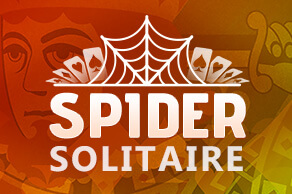Pilloried for a viral video in which he appeared to grab random girls’ butts, and seeking any desperate, perfunctory excuse for his behavior, the YouTube star Sam Pepper resorted to a familiar line:
Guys, it’s okay that I sexually assaulted random women on the street! I didn’t mean it. It was — the key word — a prank.
Pepper has since claimed the whole video was scripted and staged — for what purpose, we’ll never know. But his insistence that the video was “a prank” and a “social experiment” still stings. Those words, much like parody and satire before them, have become the favored, debate-ending defenses for even the most indefensible Internet filth. They’re the reliable, get-out-of-jail-free cards for a range of offenses and indiscretions: misogynistic music videos, misleading memes, every fake news site that has ever plagued the News Feed with invented tales of celebrity deaths or other woes.
It’s a killer excuse, as far as such things go. No one can successfully argue against humor. If you try, you just don’t get the joke.
Except … half the things defended as parody (or prank, or satire) don’t quite merit the term. Sure, language is fluid, words are a construct, etc. etc., but terms such as “satire” and “prank” actually have pretty inflexible meanings. By misconstruing them, people like Pepper aren’t just trying to justify bad behavior — they’re also defiling entire genres. Here’s a brief attempt to fight back.
Prank (n): a practical joke or mischievous act
No one’s quite sure where the word “prank” came from, but in its earliest uses, it referred to “a ludicrous trick” — something self-evidently laughable, such as mysteriously fake phone calls placed to unknown numbers, or animals let loose in stupid places. In his classic 1953 masterwork on the subject, H. Allen Smith makes it pretty clear that pranks can be mean or immoral — they can be cruel, even. They should almost always cause embarrassment for someone involved.
But embarrassment — embarrassment, full-stop — is the critical, golden standard of the prank. There’s no room in its definition for straight-up assault. And while humor is certainly in the eye of the beholder, we’ve historically drawn lines between jokes and misdemeanors. (That line is actually pretty clear! It’s called the law.)
Prank: Calling a random number and tearfully demanding to know why the person on the other end “hung up.”
Not a prank: Sexually assaulting strangers for YouTube hits.
Parody (n): an imitation of the style of a particular writer, artist, or genre with deliberate exaggeration for comic effect.
Satire (n): the use of humor, irony, exaggeration, or ridicule to expose and criticize people’s stupidity or vices, particularly in the context of contemporary politics and other topical issues.
Parody and satire are specific types of commentary, which is why you may remember studying them in school. Both are fictional. Both are funny — although not always in the “lol” sense. And both, most importantly, editorialize on an issue or subject; without the editorializing, there can be no satire. Satire without a subject is just bad fiction.
Alas, having avoided the rigors of ninth-grade English, the proprietors of several terrible fake news sites frequently defend their rumor-mongering as “satire” or “parody.” But unless this fake story on fake winter weather is making some nuanced commentary on the meteorological industry that I’m just not aware of, it clearly fails criteria no. 3. It’s fake, sure, and it’s funny (maybe?), but it doesn’t expose corruption or stupidity or hypocrisy — and satire needs to do one of those things. If it doesn’t, it’s just fiction — poorly written, ungrammatical, thoroughly annoying fiction.
Satire: “7.1 billion demonstrate in favor of global warming”
Not satire: “Jasmine Tridevil, the woman who claims to have three breasts, found dead this morning”
Social experiment (n.): one or more treatments or programs, representing intervention into normal social processes, that are administered to some set of persons drawn at random from a specified population.
Unless you are a sociologist, student or other type of academia-minded researcher, every use of the phrase “social experiment” you have ever heard/uttered is, in all likelihood, wrong. Why? Because a social experiment, as the above definition might suggest, is a highly specific, technical term. To have a social experiment, you must have experiment and control groups. You must have metrics and measurements and margins of error. You must have researchers, in other words — the official kind, in lab coats. Without the lab coats, your absurd Youtube video/Instagram feed/Web site is just a stunt. And stunt admittedly doesn’t sound as good as “social experiment.”
Social experiment: Many things in the Journal of Experimental Social Psychology
Not social experiment: The “Today” show’s recent attempt to determine whether people will help a lost kid, and every reality show ever.








